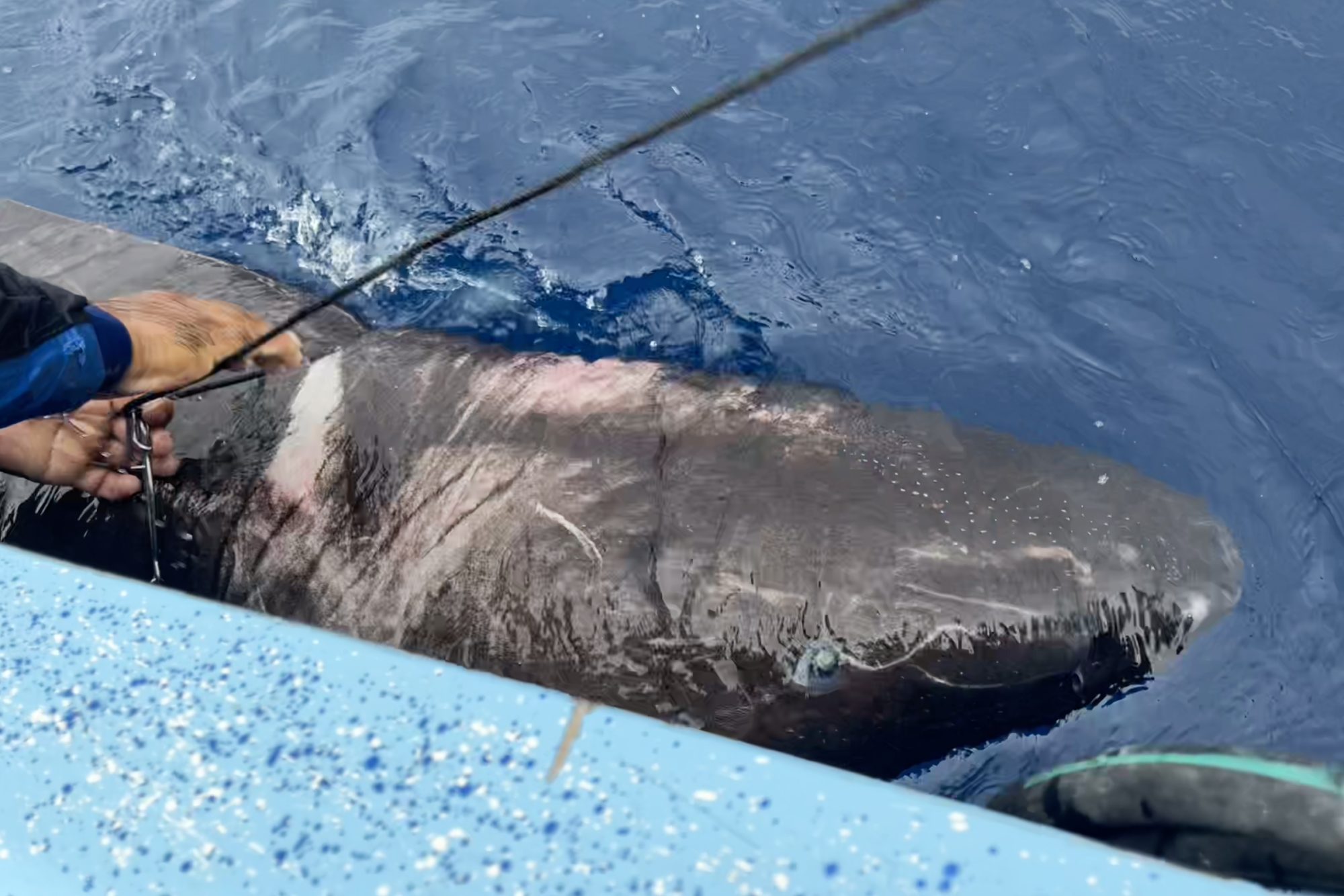Experts believe the find could be a Greenland shark, a species that can live for hundreds of years and typically sticks to freezing-cold waters
Devanshi Kasana was working with local fishers in Belize, tagging tiger sharks when something caught her attention.
Kasana, a Ph.D. candidate at Florida International University’s Predator Ecology and Conservation lab, was checking her lines only to discover what appeared to be a member of the sleeper shark family, according to a release from Florida International University (FLU).
The problem? Sleeper sharks are known to inhabit waters hundreds of miles away from the Caribbean Sea.
“At first, I was sure it was something else, like a six-gill shark that is well known from deep waters off coral reefs,” Kasana said in the release. “I knew it was something unusual, and so did the fishers, who hadn’t ever seen anything quite like it in all their combined years of fishing.”
RELATED: Dwayne Johnson Is Here to Help Shark Week Celebrate its 34th Fin-Packed Year
The shark found by Kasana and the fishers was half-blind and appeared to be part of the sleeper shark family, which contains shark species that usually survive in freezing Arctic waters. The Greenland shark, a species in the sleeper shark family, can survive for hundreds of years, according to experts.
The “sluggish creature” — as described in FIU’s release — seen by Kasana had a blunt snout and small pale eyes. “It looked old — ancient, even — and more like an elongated, smooth stone that had sprung to life” than an actual shark, the release added.
Looking for help in identifying the creature, Kasana texted her Ph.D. advisor, Demian Chapman, who is the director of sharks and rays conservation at Mote Marine Laboratory & Aquarium in Sarasota, Florida.
Never miss a story — sign up for PEOPLE’s free daily newsletter to stay up-to-date on the best of what PEOPLE has to offer, from juicy celebrity news to compelling human-interest stories.
He suggested that the discovery looked like a Greenland shark. Other experts determined that the creature could also be a hybrid between a Greenland shark and a Pacific sleeper shark.
Greenland sharks are typically slow-moving, slow-growing sharks that live in the cold waters of the Arctic and North Atlantic oceans. Scientists speculate that the animal’s slow movements contribute to its long lifespan. Experts estimate that Greenland sharks may live upwards of 400 years.
RELATED: Second Shark Attack Reported in Long Island 12 Hours After Paddleboarder Bitten at Nearby Beach
Little else is known about the species, meaning there is a lot of speculation as to why this species was spotted outside its usual habitat. Perhaps, scientists proposed, Greenland sharks live in the super-deep, colder waters of the oceans the world over, not just near the Arctic.
Scientists will continue studying the shark’s appearance in Belize while working to increase protections against shark fishing in the area.
Ellen DeGeneres’s The Ellen Fund, through the Endangered campaign, partially funds Kasana’s Ph.D. research, which involves tagging tiger sharks to track their movement and manage the species populations.
